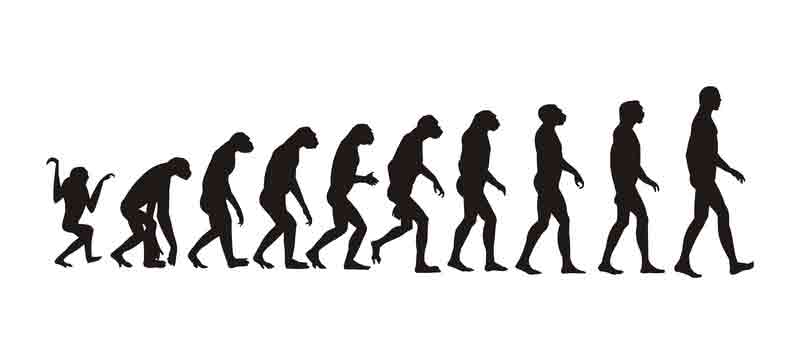Survey: 61 Percent Agree with Evolution

Americans would rather hear about evolution from scientists than from judges or celebrities, according to a new survey that finds a majority agree that evolution is at work among living things.
A coalition of 17 organizations reacted today to the survey by calling on the scientific community to become more involved in promoting evolution and other aspects of science education.
The coalition, including the National Academy of Sciences, the American Institute of Physics and the National Science Teachers Association, released this statement:
"The introduction of 'non-science,' such as creationism and intelligent design, into science education will undermine the fundamentals of science education. Some of these fundamentals include using the scientific method, understanding how to reach scientific consensus, and distinguishing between scientific and nonscientific explanations of natural phenomena."
Irony of reason
The statement was included in an article in the January 2008 issue of the Federation of American Societies for Experimental Biology's FASEB Journal.
"In an age when people have benefited so greatly from science and reason, it is ironic that some still reject the tools that have afforded them the privilege to reject them," says Dr. Gerald Weissmann, the journal's editor-in-chief.
Sign up for the Live Science daily newsletter now
Get the world’s most fascinating discoveries delivered straight to your inbox.
The article is based on a new national survey of 1,000 likely U.S. voters. Respondents favored teaching evolution over creationism or intelligent design.
Respondents also were more interested in hearing about evolution from scientists, science teachers and clergy than from Supreme Court Justices, celebrities or school board members. A key finding from the survey: There is a relationship between people's understanding of science and their support for teaching evolution.
Respondents were asked three science questions: one related to plate tectonics, one related to the proper use of antibiotics and one related to prehistory. Those who accurately answered questions on these subjects were far more likely to support the teaching of evolution in schools.
Skewed answers
The report points out that Americans' views on evolution vary depending on how questions are asked.
In a previous Gallup poll, people were asked to choose whether humans developed over millions of years, with or without guidance from God (as in one Gallup poll question). More selected evolution with guidance (38 percent) than without guidance (13 percent).
But in a previous Pew Research Center poll, respondents were first asked, without reference to a supreme being, if they thought humans evolved or were created in their present form. Those who accepted evolution were then asked if they thought it occurred through natural processes or with guidance. When asked this way, 18 percent reported that evolution occurred with guidance, and 25 percent accepted that it occurred through natural selection.
The new poll
In the new FASEB poll, researchers asked half of the respondents about their views on the evolution of "all living things" and found that 61 percent accepted that "all living things have evolved over time." Of those, 36 percent thought all living things "evolved due to natural processes such as natural selection," and 25 percent thought "a supreme being guided the evolution of living things for the purpose of creating life in the form it exists today."
The researchers asked the remaining respondents to consider human evolution and found that 53 percent accepted that "humans and other living things" evolved. This majority included 32 percent who accepted that humans and other living things evolved through natural processes and 21 percent who thought they had evolved with guidance.
Scientists accept evolution as the best and only theory that accurately explains how humans and other species came to be so diverse. The theory is supported by many studies in many different fields of science. Intelligent design is a thinly veiled creationist argument designed to make the public doubt the theory of evolution, according to nearly all scientists and a 2005 ruling by U.S. District Court Judge John E. Jones III in Kitzmiller v. Dover Area School District.
"The bottom line is that the world is round, humans evolved from an extinct species and Elvis is dead," Weissmann said. "This survey is a wake-up call for anyone who supports teaching information based on evidence rather than speculation or hope; people want to hear the truth, and they want to hear it from scientists."










